Write & Lift is an ethos of personal and spiritual development through conscious physical exertion and practice of the writing craft. Through this effort to strengthen our bodies and minds, we become anti-fragile and self-respecting sovereign individuals. Through this effort, we may stand against untruth and evil and create a new culture of vitality, strength, and virtue
Stuck Culture
Modern filmakers get off on antagonizing you (the audience).
Every hero must be deconstructed. Every tradition mocked. Every father figure revealed as a fraud (or, better yet, a giant fat white slob).
American entertainment culture is stuck. Originalty is dead. Nobody wants to take a risk in their storytelling. At best, we get 1-2 CGI slopfest renditions of classic works per year, carried entirely by the weight of impressive visuals and cinematic grandeur (Dune is a fitting example); 1-2 breakthrough “masterpieces” every five (was Oppenheimer really that good though?)
Film is the storytelling medium of the current age and it will remain so until virtual reality technology with haptic environments and full immersion become the new norm. And in this brief period of filmmaking history we have to look back at, we already reached our peak. This can change, of course. But only when filmmakers, writers, and the studio executives who greenlight garbage understand what films are built from. They are, like all good stories, reflections of reality—magnified, condensed, extrapolated into unseen points of view, and purposefully structured to tell us something. The last point being the most crucial.
When you watch a film, you’re watching a type of visual philosophy. Characters, scenes, visuals, and story arcs serving as individual pieces of a whole. Stories are a reminder of who we are and where we’re going, and they need to be taken seriously for this reason.
As the dominant storytelling medium of the 21st century, what our films say (or don’t say) speaks to what we have (or don’t have) as a culture. In 2025, 61 of the high budget films being released are either remakes, sequels, or spin-offs of old franchises. Another Jurrassic Park movie, why? Live action Snow White and Lilo & Stitch remakes, why? A Basic Instinct remake, why? Because modern Hollywood lacks the two qualities which ignited it’s rise eighty years ago.
Good Story’s Need An “Ethos”
Every great story emerges from a moral conception. The writer must believe in something: good, evil, honor, love, sacrifice, redemption. And not just believe, but understand why these things matter; they must have a reason to articulate its meaning. Shakespeare believed in the tragic nobility of flawed kings. Tolkien believed in the power of simple courage against overwhelming darkness. Even the cynical noir writers of the '40s believed in the existence of corruption that was worth exposing.
Modern Hollywood operates from an anti-ethos that has destroyed its capacity for genuine storytelling. The screenwriter has been educated to believe that moral certainty is naive, that traditional values are oppressive, and that the highest virtue is not offending anyone, but rather, fighting relentlessly for those who see offense, bigotry, and an “unfair system” around every corner. This produces stories that aim at nothing and hit their target perfectly.
Never before in human history has a culture gone through such a drastic moral and philosophical shift. Consider the difference between the original Star Wars trilogy and the Disney sequels. Lucas, for all his flaws, believed in the archetypal struggle between good and evil. The story was simple. He understood that Luke Skywalker’s journey mattered because it represented something eternal about human potential. That we have the capacity to choose light over darkness, hope over despair; good against evil. The Disney films, crafted by committees of executives and focus groups, believe in nothing except the perpetuation of brand recognition. They gesture at themes—legacy, sacrifice, redemption—without any genuine conviction about what those concepts mean. The Disney films took Luke Skywalkers; a beacon of optimism who redeemed the most feared man in the galaxy through love and faith, and turned him into a bitter hermit who considers murdering his nephew in his sleep. The Luke Skywalker of The Last Jedi is a man who has given up on everything he once believed. The Jedi are failures. The Force doesn't matter. Having hope in anything is retarded. He tosses his father’s lightsaber over his shoulder like garbage.
This is why modern films feel hollow despite their technical sophistication. The machinery of storytelling has been perfected while the soul has been extracted and hollowed out. Writers who have been taught that all narratives are equally valid, that objective truth doesn't exist, that moral frameworks are social constructs, cannot create stories that resonate with the deepest parts of human experience. They can craft clever dialogue and construct plot mechanics, but they cannot breathe real life into their creations.
They mistake cynicism for sophistication and irony for wisdom. Believable dialogue gets reduced to snarky quips and irony. Plots prioritize subverting expectations over satisfying them. Heroes are deconstructed—their moral and philosophical aims tossed aside for convenience and “shock factor”—then into committee-designed algorithms designed to appeal to as many demographic segments as possible. Top Gun: Maverick, an outlier in modern filmmaking, succeeded not because it was a safe sequel, but because it committed fully to themes of honor, mentorship, and sacrifice that most modern films are too embarrassed to embrace. It was a simple story, but then again, all good story’s are.
Part of the filmmakers job is to remind us what a good story is, not play to our base desires. The vast majority of us aren’t storytellers, but we know a good story when we see or hear one. It isn’t that audiences have changed, it’s that the entertainment industry (across all domains) have dumbed down the product to the point that we often forget how good it could be. The Lord of the Rings, The Godfather; these are films that live forever, simply because they’ve merged all components of dramatized life into a symphony that attaches itself to our subconscious.
It’s Called Delusion Because You Can’t See It
After sing-songwriter Jeff Buckley’s breakthrough album Grace, he gave an interview saying that he wished he could go back to being an anonymous busker and cafe musician in New York City. The expectations of continued success gnawed away at his soul and the weight of expectations pulled his mind into shadow. Buckley was a true artist in this sense, a committed creative who sought to detach popular success from the act of turning ideas into songs. Not all artists are like this. As the business megalith of any creative industry grows, creative genius is often sidelined for those who are agreeable to the needs of marketing, political, and creative “normalcy.” JJ Abrams, for example, is a megastar in the filmmaking world, but are his films a reflection of his true genius or the profit motivated needs of studio executives? I would say the former. It isn’t that Armageddon or Forever Young are terrible films (compared to what is being released today I’d even say the campy drama is kind of refreshing) but as a launchpad for the most coveted career in entertainment, it doesn’t square up. He gets the moment, he gets the tech, he gets the marketing, but he’s no George Lucas. Abrams, like dozens of other filmmakers, lacks vision. And the reason is simple.
When someone dedicates their entire life to a niche field of study, the field itself tends to atrophy and harden itself against any ideas seen as “outside” the norm. They are typically forced—by audience capture and industry expectations—to specialize and niche down. The bright eyed Anthropology undergrad inevitably becomes the specialist in Pre-Columbian indigenous basket weaving. The well-rounded art student becomes the “master of formless post-modern abstraction” (or some other nonsense). The broad digital marketer becomes the guy who runs Facebook ads for enterprise SaaS companies.
There is no rule that says that time spent orbiting around and studying a certain field leads to breakthroughs and insights unique to that individual. Time in the field does not give someone the exclusive right to any and all insights. But we think hierarchicaly, and in turn, ascribe absurd levels of trust to those who plant their flag in one domain and stay there. An eighty-year-old Oxford physicist can have their entire lifes work and set of theories wiped away because a post graduate Chinese math savant “mathed” harder.
A one-hit-wonder songwriter can churn out uninspired album after uninspired album, and still draw a small crowd; everyone waiting patiently for that one track that reminds them of summer makeout sessions with their teenage girlfriend thirty years ago. The mind will go to great lengths to conceal lies we tell ourselves. For most people, one critical comment will overshadow a hundred positive ones. For the delusional artist, the weighty praise of another industry big dog can conceal thousands of negative opinions from “the little people.”
Delusions of grandeur are common in the creative mind (the novel I’m writing has three seperate points of view that coelesce during the third act—delusional as a first attempt but it is what it is). It’s how we justify our own lack of success, or worse, cope with the aftermath of releasing something objectively bad. But the “plebiens”—you, me, all of us really—can actually intuit good art at a far moree complex level than the average artist gives them credit for. Art, after all, is a reflection of the lives, stories, myths, dreams, culture, and foundational pillars that our societes are organically erected from. We live in these stories every day, regardless of whether or not we recognize it. The average person may not spend hours each day actively bouncing around questions of David Lynch’s metaphoric imagery in Mullholland Drive, but when they see something that speaks to a reflection of life, it either burrows into them as a powerful reminder of who we are, or it disgusts them.
This is something that modern filmmakers don’t understand. They carry the most cultural power. And with that power comes a great risk of delusion and myopia. The assumption that the audience does not know what you know, turns films into experiments in impressing other filmmakers and critics. “Put a chick in it and make her gay and extremely powerful” was, at one time, a new thing. Critics saw it as groundbreaking and subversive, while audiences, even then, saw it as unrealistic and antithetical to the power that women posses which distinguishes them from men. An architect can “break ground” and erect a never before seen phallus shaped apartment building, but that doesn’t mean that it’s worth building in the first place.
The primary axiom of “stuck culture” is that modern filmmakers can’t accept that some things are worth more than others. Their worldview doesn’t permit an implied hierarchy. So they make films about heroes who aren't heroic, journeys that lead nowhere, sacrifices that accomplish nothing. They lean on a category of “realism,” forgetting that story’s are meant to show a transcendent ideal rather than mundane.
This machine doesn't want you to see possibilities. It wants you to see problems. This is why the films feel hollow. They're made by people who believe human nature is fundamentally flawed, heroism impossible, meaning arbitrary. They're not trying to inspire you, they're actively inoculating you against inspiration.
But you don't have to consume what they produce. You don't have to let them tell you that your deepest aspirations are naive, or that your highest values problematic; your search for meaning misguided.
Don't feed the machine. Find stories that make you larger. Rewatch the classics. Read books. Make your own art. The machine is powerful, but not inevitable. It depends on your participation, attention, money. Withdraw and it starves.
As always, thanks for reading.
-Joe





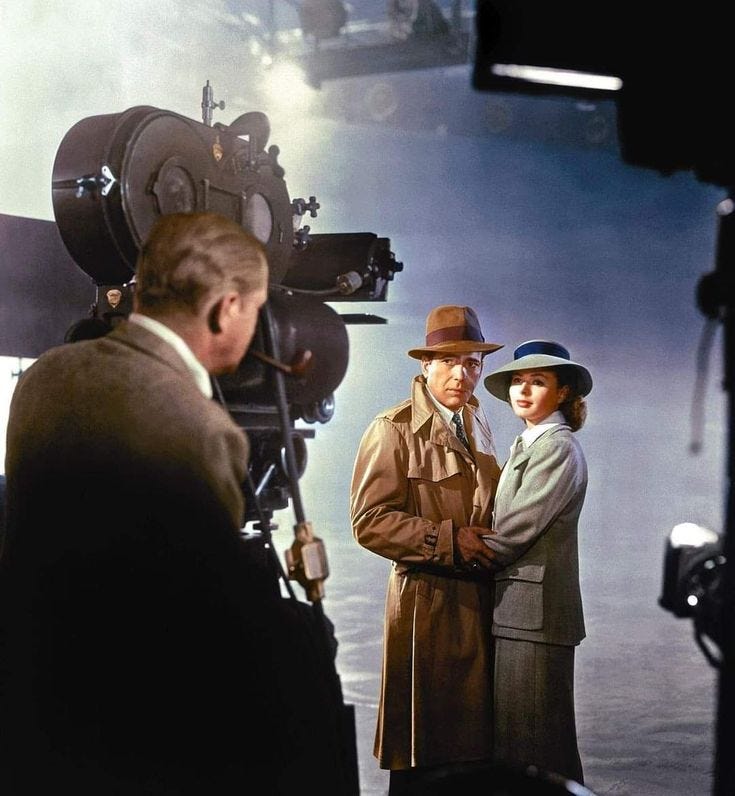
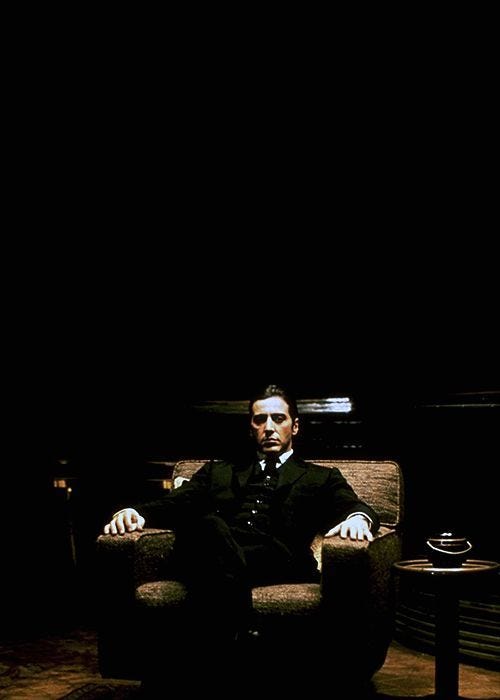
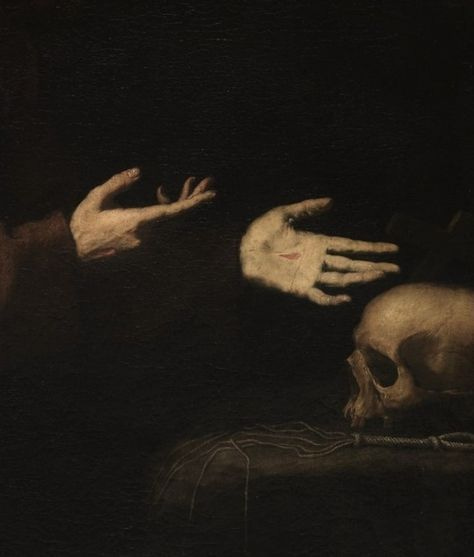

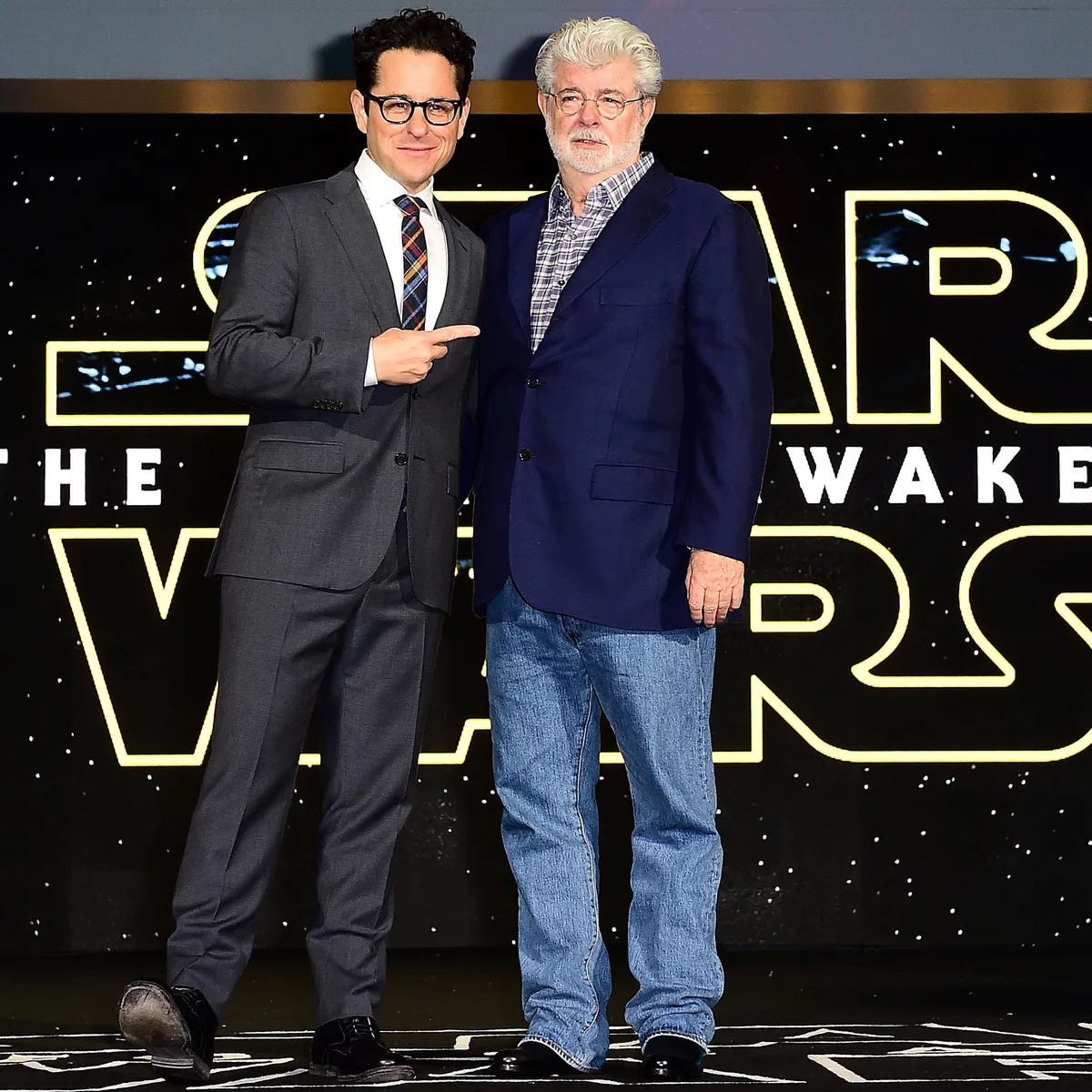
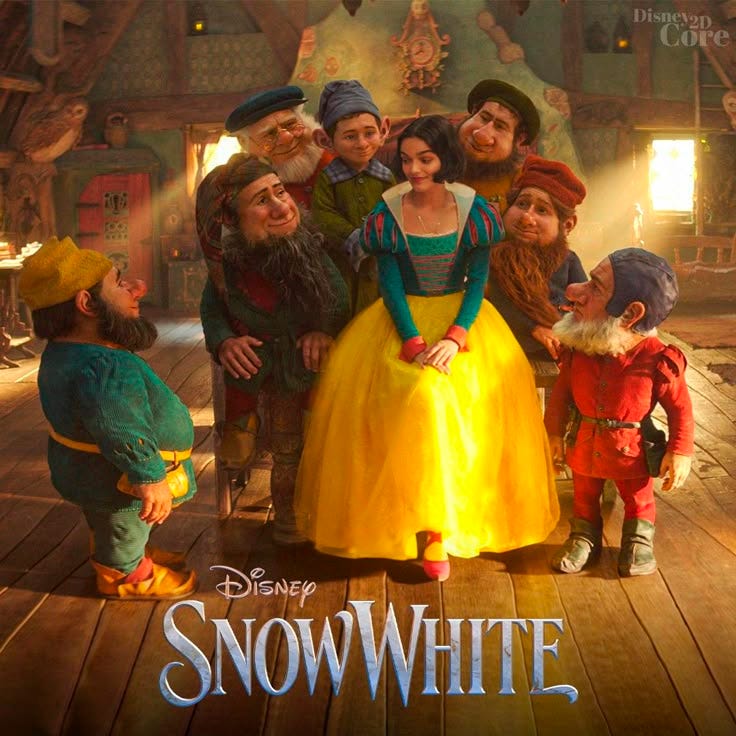
The conclusion speaks to me. With all the garbage that’s pumped into modern books and movies, I find myself reading and watching more of the classics from Tolkien, Dostoevsky, Dumas, or a film epic like Lawrence of Arabia. These classics really do just inspire wonder, intrigue, and the desire to transcend.
Banger mate